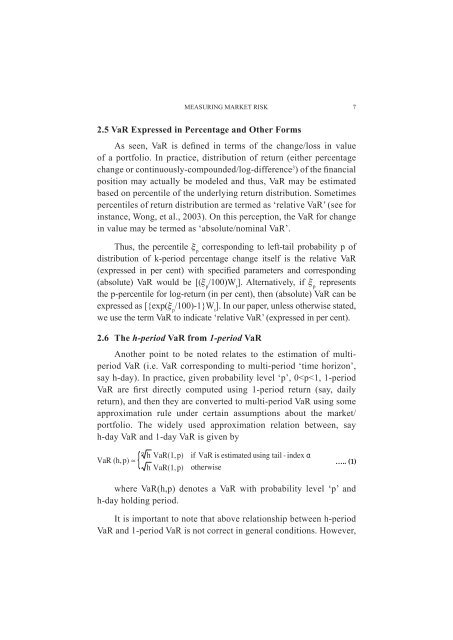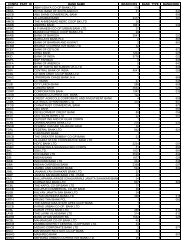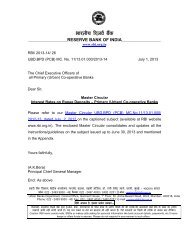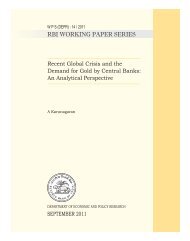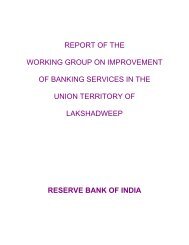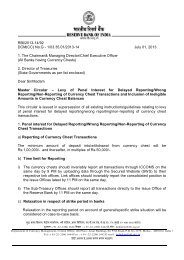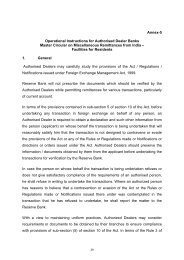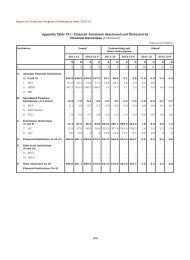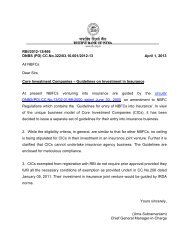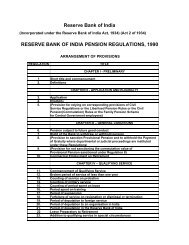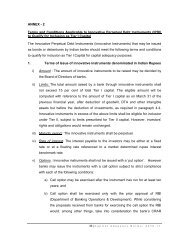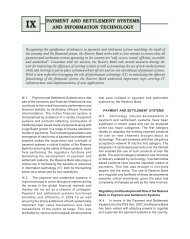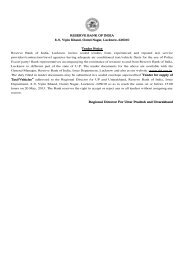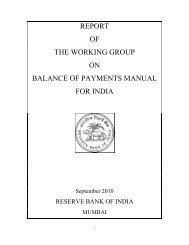Measuring Market Risk - Reserve Bank of India
Measuring Market Risk - Reserve Bank of India
Measuring Market Risk - Reserve Bank of India
Create successful ePaper yourself
Turn your PDF publications into a flip-book with our unique Google optimized e-Paper software.
MEASURING MARKET RISK 7<br />
2.5 VaR Expressed in Percentage and Other Forms<br />
As seen, VaR is defined in terms <strong>of</strong> the change/loss in value<br />
<strong>of</strong> a portfolio. In practice, distribution <strong>of</strong> return (either percentage<br />
change or continuously-compounded/log-difference 3 ) <strong>of</strong> the financial<br />
position may actually be modeled and thus, VaR may be estimated<br />
based on percentile <strong>of</strong> the underlying return distribution. Sometimes<br />
percentiles <strong>of</strong> return distribution are termed as ‘relative VaR’ (see for<br />
instance, Wong, et al., 2003). On this perception, the VaR for change<br />
in value may be termed as ‘absolute/nominal VaR’.<br />
Thus, the percentile ξ p<br />
corresponding to left-tail probability p <strong>of</strong><br />
distribution <strong>of</strong> k-period percentage change itself is the relative VaR<br />
(expressed in per cent) with specified parameters and corresponding<br />
(absolute) VaR would be [(ξ p<br />
/100)W t<br />
]. Alternatively, if ξ p<br />
represents<br />
the p-percentile for log-return (in per cent), then (absolute) VaR can be<br />
expressed as [{exp(ξ p<br />
/100)-1}W t<br />
]. In our paper, unless otherwise stated,<br />
we use the term VaR to indicate ‘relative VaR’ (expressed in per cent).<br />
2.6 The h-period VaR from 1-period VaR<br />
Another point to be noted relates to the estimation <strong>of</strong> multiperiod<br />
VaR (i.e. VaR corresponding to multi-period ‘time horizon’,<br />
say h-day). In practice, given probability level ‘p’, 0


